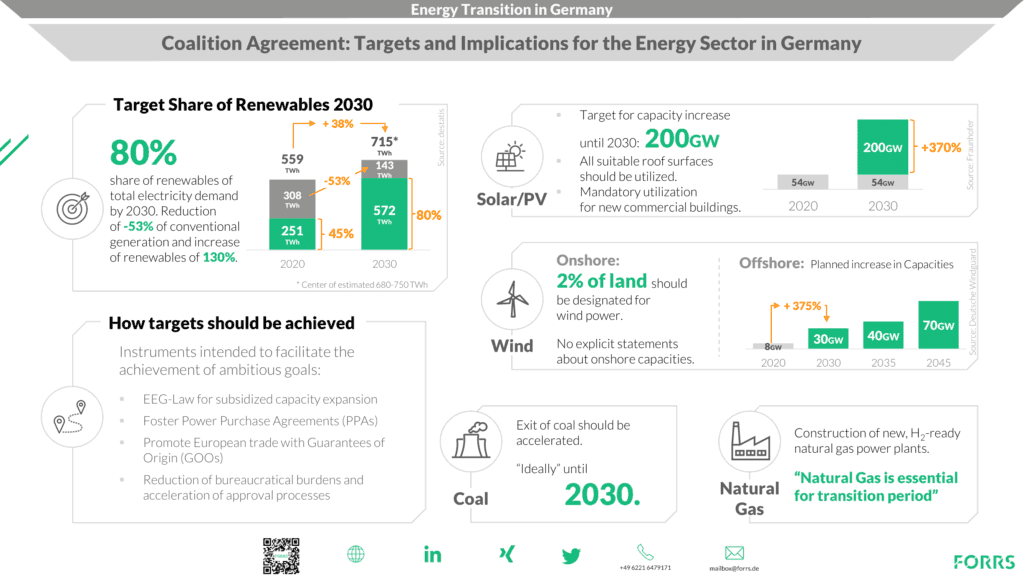01.12.2021 / 09:26
Coalition Agreement: Targets and Implications for the Energy Sector in Germany
Energy Markets

Energy Transition in Germany
In many scenarios, the following years until 2030 are crucial on the path to climate neutrality and net zero in 2050. As a result, the next Government of Germany is challenged to pave the way to climate neutrality.
Last week, the German Parties SPD, Grüne and FDP have reached a consensus and presented their coalition agreement for the legislative period from 2021 to 2025 to the public.
We have a close look at the agreement with a special focus on the targets and implications for the energy sector, and compared them with the current status of 2020.
From these targets and implications, we have identified main challenges for the upcoming government and the energy sector:
Increasing renewables capacity increase will result in elevated complexity of commercialization of assets due to the high volatility of renewable generation.
PPA and GOO markets need to develop even faster towards more liquidity and transparent market regimes.
Infrastructure projects to build out significant renewables’ capacities need to be financed, approved, and conducted fast.
Gas supply and associated infrastructure needs to be ensured in order to still meet consumer electricity demand during periods of low renewable production supply
Enable a future infrastructure to develop H2 technologies and solutions, also to become a technological innovation leader
Development of off-shore generation capacities requires significant and secured financial investments.
Do you think the formulated targets are realistic and the challenges can be overcome? Or are the targets and implications too ambitious? Let us know in the comments of the post on LinkedIn or reach out, we are happy to discuss!
Take a closer look at our Factsheet with the analyzed content from the Coalition Agreement.

